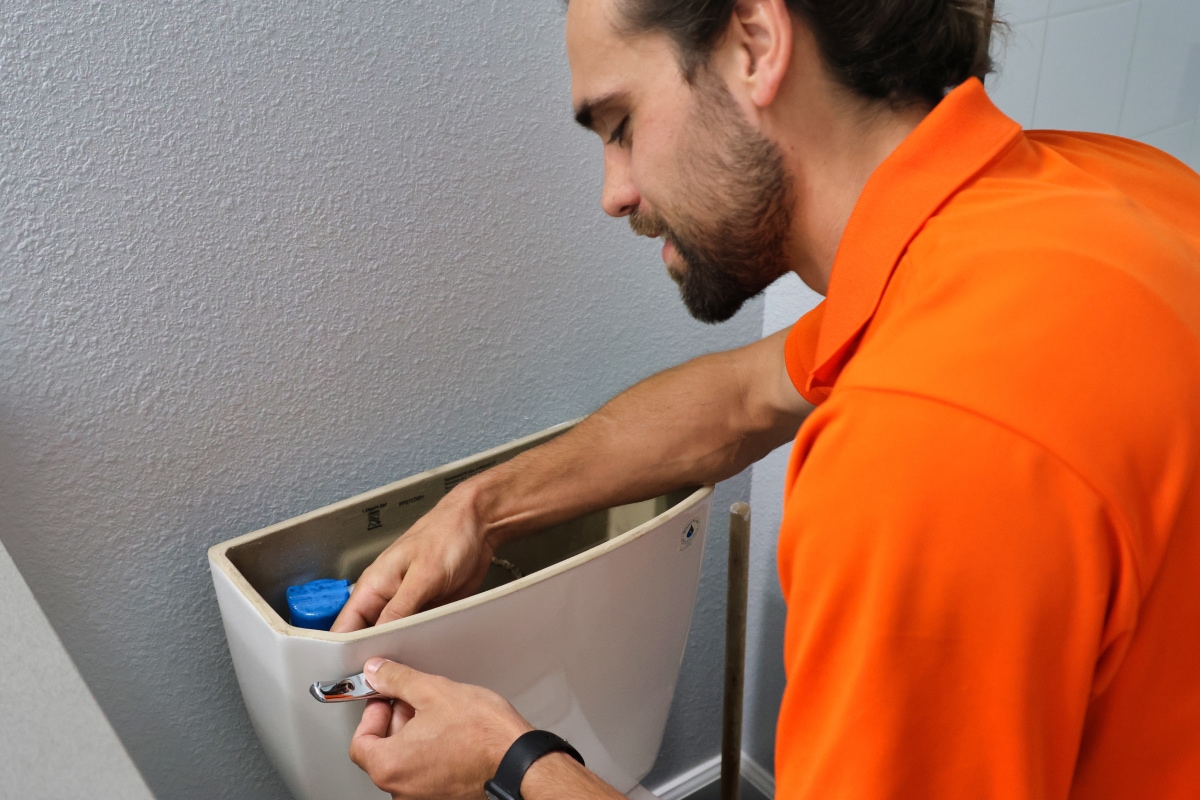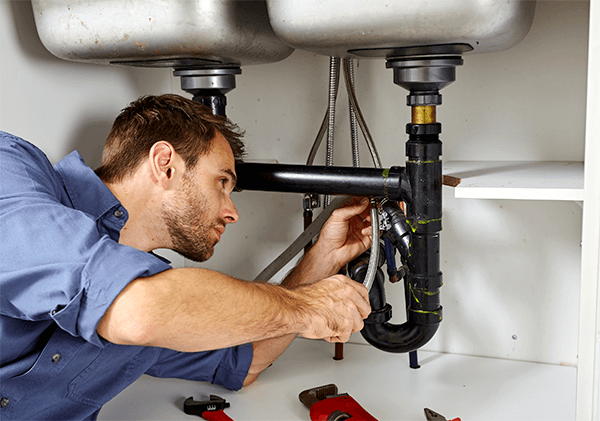Immediate Tips for Emergencies: What to Do Until Help Arrives
Immediate Tips for Emergencies: What to Do Until Help Arrives
Blog Article
Just how do you feel on the subject of Expert Tips for Emergency Plumbing Repairs?

Plumbing emergency situations can strike at any time, triggering anxiety and possible damage to your home. Whether it's a ruptured pipe, a stopped up drainpipe, or a leaky tap, recognizing how to manage the circumstance till a professional plumbing technician gets here can conserve you from further issues. This post gives essential emergency pipes tips to assist you minimize damage and restore control throughout a pipes situation.
Turn Off the Supply Of Water
The primary step in any type of pipes emergency situation is to shut down the water. For local concerns, such as a dripping tap or commode, switch off the shutoff near the component. In the case of a major leak or burst pipe, locate your home's main water shut-off valve and transform it off immediately. Knowing the area of these valves beforehand can conserve beneficial time during an emergency.
Address Tiny Leakages with Short-term Solutions
Tiny leaks can promptly end up being significant issues if left unattended. Make use of these short-term solutions up until professional assistance arrives:
While these fixes aren't long-term, they can aid lessen water loss and damages.
Unclog Drains Pipes Securely
A clogged up drainpipe can be an irritating and messy problem. Right here's exactly how to tackle it:
If these approaches don't function, avoid making use of extreme force, as it might worsen the clog.
Manage Overflowing Toilets
An overflowing commode can cause immediate chaos. Below's what you ought to do:
Shut Off Your Water Heater
In particular emergency situations, such as a ruptured pipeline, it's important to shut down your hot water heater. This stops getting too hot or damages to the system when water stops streaming. Shut off the power supply to the water heater (electric or gas) and let it cool down to stay clear of possible threats.
Momentarily Quit a Burst Pipe
A burst pipeline can bring about considerable water damage in minutes. To mitigate the concern:
Call a professional plumbing professional promptly to deal with the issue permanently.
Handle Frozen Water Lines Thoroughly
In colder climates, frozen pipelines are an usual emergency. If you think a frozen pipeline:
Avoid Further Damages
Taking quick activity to lessen damage can conserve you time and money in the future. Below's exactly how:
. Have an Emergency Situation Plumbing Package
Prepare a fundamental plumbing emergency package to handle minor concerns effectively. Your set needs to include:
Having these devices available can make a substantial distinction in your ability to handle emergency situations.
Know When to Call a Professional.
While quick fixes can assist momentarily, certain plumbing problems call for immediate expert focus. Call a plumber if:.
Quickly getting in touch with an expert makes certain the concern is resolved correctly and avoids further problems.
Final thought.
Pipes emergency situations can be frustrating, yet with the appropriate expertise and devices, you can take care of the scenario properly till assistance shows up. By shutting off the water system, resolving tiny leakages, and making use of short-lived solutions, you can decrease damages and maintain your home safe. Bear in mind, these pointers are short-lived options; constantly seek advice from an accredited plumbing technician to manage the root cause of the problem. Preparation and fast reasoning are your ideal allies in any type of plumbing emergency.
Expert Tips for Emergency Plumbing Repairs
Plumbing emergencies can be incredibly stressful and inconvenient. Whether it’s a burst pipe, a clogged drain, or a leaky faucet, these common plumbing emergencies need immediate attention to prevent further damage to your home. But before you panic, it’s important to understand the basics of plumbing repairs and the steps you can take to address these emergencies. In this article, we will share some expert tips to help you navigate through these situations and minimize potential water damage.
Identifying Common Plumbing Emergencies
Leaky pipes and faucets Clogged drains and toilets Burst pipes Low water pressure Water heater problems Essential Tools for Plumbing Repairs
Plunger: Useful for unclogging toilets and drains Adjustable wrench: Needed for tightening or loosening nuts and bolts Pipe wrench: Ideal for gripping and turning pipes Tape measure: Necessary for accurate pipe measurements Plumber’s tape: Helps create watertight seals Understanding Emergency Plumbing Services
Emergency plumbing services are designed to provide immediate assistance for unexpected plumbing issues that can cause significant damage to your home, business, or health. These services are typically available 24/7 and are staffed by experienced plumbers who can quickly diagnose and repair a wide range of plumbing problems.
When a plumbing emergency strikes, time is of the essence. Whether it’s a burst pipe flooding your basement or a gas leak posing a serious risk, emergency plumbing services ensure that help is just a phone call away. These professionals are equipped with the tools and expertise to handle any situation, minimizing damage and restoring your plumbing system to proper working order.
What Constitutes a Plumbing Emergency?
Burst pipes or water supply lines: These can cause extensive water damage and need immediate repair to prevent flooding. Gas leaks or suspected gas leaks: Gas leaks are extremely dangerous and require prompt attention to avoid potential explosions or health hazards. Sewer backups or overflows: These can lead to unsanitary conditions and significant property damage. Clogged drains or toilets causing water to overflow: Overflowing water can damage floors, walls, and other structures. Leaks or water damage causing structural damage: Persistent leaks can weaken the structural integrity of your home or business. No hot water or heating: A lack of hot water can be more than an inconvenience, especially in colder months. Common Causes of Plumbing Emergencies
Aging or corroded pipes: Over time, pipes can deteriorate, leading to leaks or bursts. Improperly installed or maintained plumbing fixtures: Faulty installations or lack of maintenance can result in unexpected failures. Tree roots or other debris infiltrating your sewer line: Roots can grow into pipes, causing blockages and backups. Frozen pipes or water supply lines: In colder climates, pipes can freeze and burst, leading to significant water damage. High water pressure or sudden changes in water pressure: Excessive pressure can strain pipes and fixtures, causing them to fail. Natural disasters such as floods or earthquakes: These events can disrupt your plumbing system and cause severe damage. Steps to Minimize Water Damage
Locate the water shut-off valve: Knowing where the valve is can help you quickly cut off the water supply to the affected area. Turn off the water heater: If there’s a risk of water coming into contact with the heating element, make sure to turn off the water heater to avoid potential accidents. Open faucets and drain pipes: By opening faucets and drain pipes, you can relieve pressure and empty any standing water. Collect and contain water: Use towels, buckets, or bins to collect water and prevent it from spreading to other areas of your home. https://leecountyplumbingandwellservice.com/expert-tips-for-emergency-plumbing-repairs/

Do you enjoy more info about ? Post feedback below. We will be happy to find out your insights about this page. In hopes to see you back again later on. Do you know somebody who is curious about the topic? Be sure promote it. Thanks a lot for being here. Revisit us soon.
Call Today Report this page